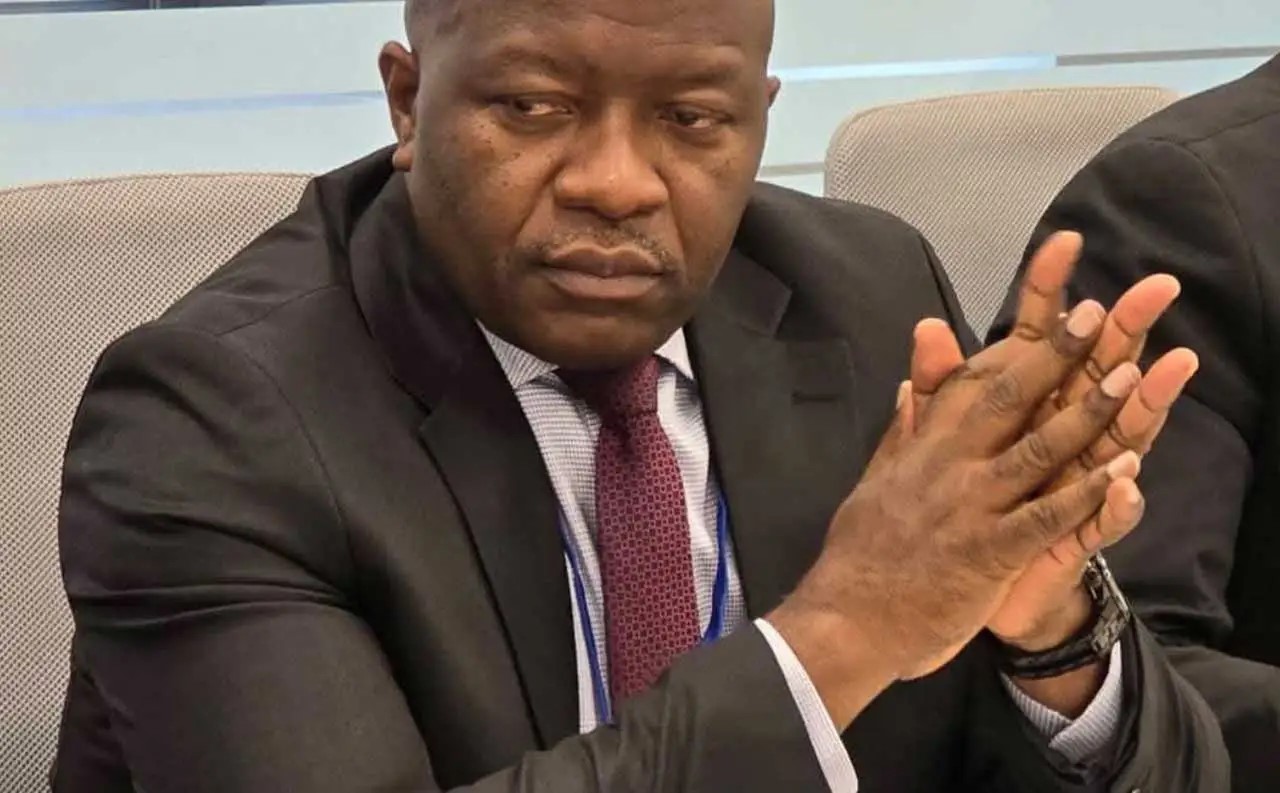MONROIA – Woohoo! Big news, Liberia! President Boakai just submitted the FY 2026 budget to the National Legislature for ratification, and it is seemingly a game-changer – a whopping $1.2 billion! This is unprecedented! The nation, since the civil crisis, has never seen a budget hit the billion-dollar mark before. It has been a long time coming, though. Down memorial lane, it can be remember former President Ellen Johnson Sirleaf took the fiscal space of the nation from $80 million to over $700 million, and President George Weah’s administration aimed high with the “From Millions to Billions” slogan, but it never quite made it to the billion mark. Now, Finance Minister Ngafuan, aka the “Prayer Warrior” and “Minister Fiscal Deficit,” is under the spotlight. Can he redeem his reputation with this massive budget? The focus is on investments in agriculture, roads, education, and more, aligning with the ARREST Agenda. Let’s see what the future holds! The Analyst reports.
President Joseph Nyuma Boakai, has submitted the Draft National Budget for Fiscal Year 2026 to the National Legislature, amounting to US$1,211,085,227 (one billion two hundred eleven million eighty-five thousand and two hundred and twenty seven United States dollars).
The Budget was formally presented to House Speaker Richard Nagbe Koon by Finance and Development Planning Minister Augustine Kpehe Ngafuan on behalf of President Boakai.
According to the draft FY 2026 Budget, domestic revenue accounts for US$1.13 billion (94%), while external resources represent US$72 million (6%). Domestic revenue projections include Tax Revenue of US$726.97 million, Non-Tax Revenue of US$83.92 million, Mittal Sign-on Bonus of US$200 million, and Contingent Revenue of US$28 million.
The proposed Budget prioritizes investments which align with the ARREST Agenda. It allocates approximately US$280 million to projects under the Public Sector Investment Plan (PSIP)—a key pillar of the Administration’s development framework focused on Agriculture, Roads, Rule of Law, Education, Sanitation, and Tourism.
In his Budget Message to the Legislature, President Boakai commended lawmakers for the timely passage of the FY 2025 National Budget, which facilitated a more effective and transparent implementation of government programs during the current fiscal year.
The President urged the National Legislature to ensure a timely and transparent review and approval of the FY 2026 Draft Budget, emphasizing the importance of maintaining legislative due diligence and accountability in the process.
The submission of the Draft National Budget fulfills the requirement of Section 1.7.1 of the 2019 Amendment and Restatement of the Public Financial Management (PFM) Act of 2009, which mandates that the proposed budget be submitted to the Legislature within the statutory period.
Meanwhile, Finance and Development Planning Minister Ngafuan will hold a special press briefing at the Ministry of Information, Cultural Affairs and Tourism (MICAT) on Monday, November 10, 2025, at 12:00 noon, to provide detailed insights into the draft budget and its key priorities.
Fiscal Pundits Weigh In on Liberia’s FY 2026 Budget
The submission of President Joseph Nyuma Boakai’s administration’s FY 2026 budget has sparked debate among fiscal experts, with some hailing it as ambitious and achievable, while others express concerns over its realism.
University of Liberia economist, C. Togba Jayson, believes the budget’s focus on increasing domestic revenue through tax reforms and improving non-tax revenue streams is a solid approach.
“The $200 million Mittal Sign-on Bonus is a great start, and with proper implementation, we can meet our targets,” he said.
Finance Analyst Sam R. Fahnbullah echoes this sentiment: “Liberia’s economy has potential, and this budget invests in key sectors that drive growth. With effective management, we can boost revenue and make this budget a success.”
However, former politician now Economics instructor, who does not want to be named, disagrees, arguing that the budget’s domestic revenue projections are inflated.
“We need more realistic targets and a solid plan to address our infrastructure and capacity gaps,” he cautioned.
Milton Togba, a Fiscal Policy Expert, shares similar concerns. He said: “The budget prioritizes big projects, but what about recurrent expenditures? How will we fund public sector salaries and debt servicing? It’s a recipe for fiscal crisis.”
A neutral analysis notes that the budget’s reliance on domestic revenue is high, and meeting the tax revenue target will require significant efforts.
The government’s commitment to improving tax administration and broadening the tax base is seen as a positive step. However, external resources are relatively low, and the government may face challenges in securing funding if global economic conditions change. Finance Minister Augustine Kpehe Ngafuan will hold a press briefing on Monday to provide more details on the budget’s implementation plans and address concerns.

Comments are closed.